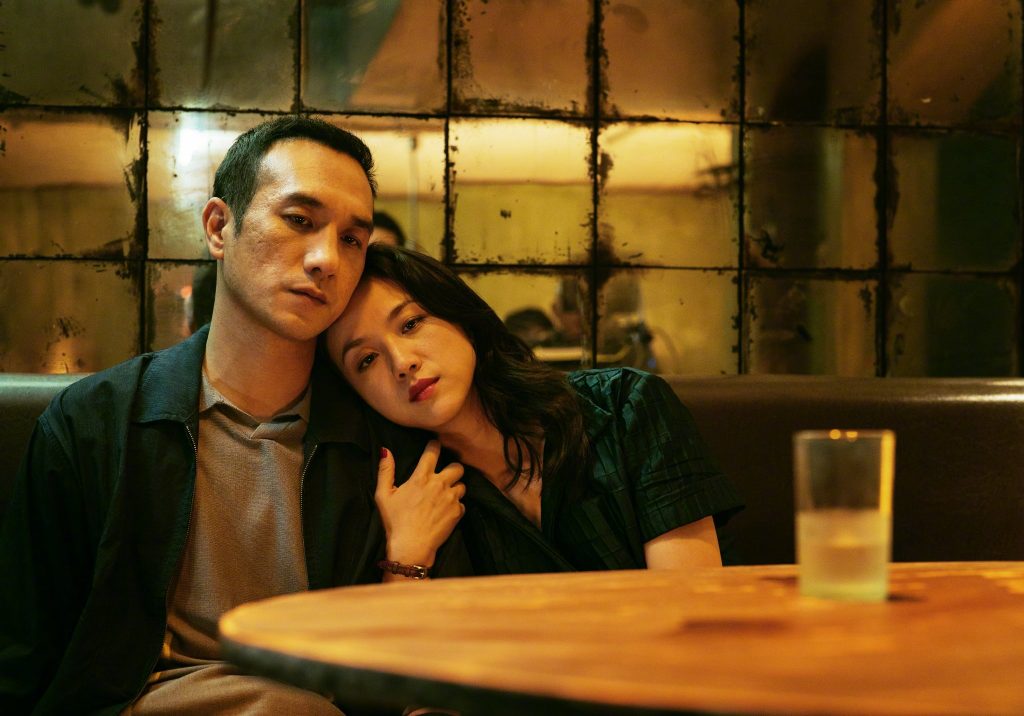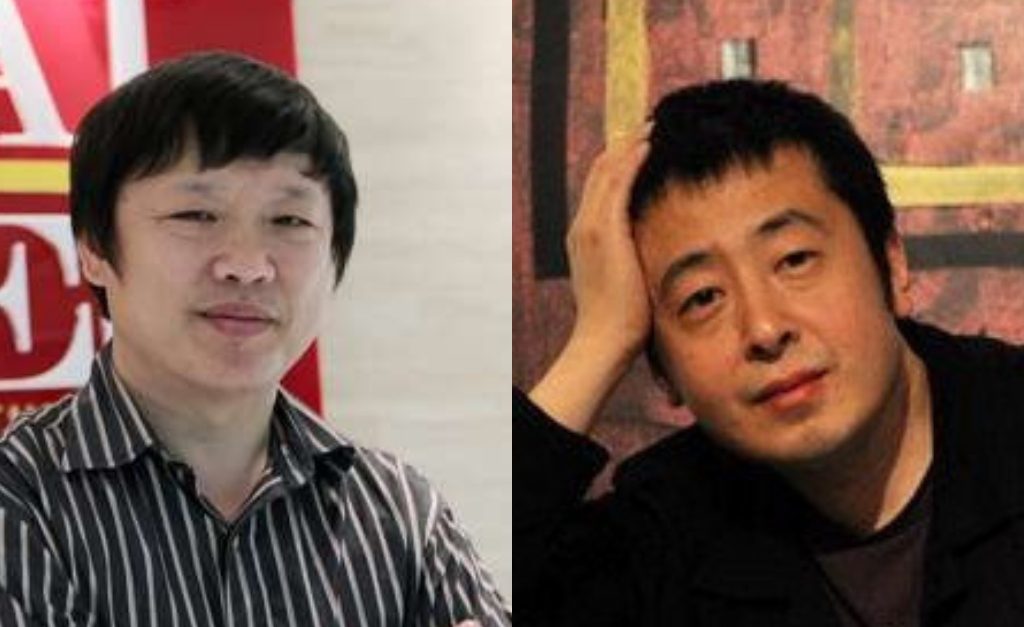With one of the strongest lineups in years, this edition of the New York Film Festival featured over a dozen titles, new and old, from Asia. Several will be receiving theatrical releases in the coming months, but the opportunity to view them together gave a better idea of some of the range and depth of the fastest-growing movie market in the world.
Grabbing a lot of the attention was Long Day’s Journey Into Night, the second feature by Bi Gan. His debut, Kaili Blues, took an idiosyncratic approach to road movies. Long Day’s Journey can be seen as Gan’s take on film noir, although with many unexpected turns.
Kaili Blues presented a new Chinese landscape to Western viewers, a semi-tropical world of steep hills, heavy rains, lush foliage and decaying architecture. Long Day’s Journey takes place in some of the same locations, notably a former mining colony that later served as a prison before falling into disrepair.
Fans of Kaili Blues were especially wowed by a 45-minute take that followed several characters on motorcycles, trucks, boats and on foot, dwelling on a concert at a street fair, a beauty salon, a restaurant and other tangents. Gan originally wanted the shot to last even longer, but ended up dropping one of the musical performances.
The writer-director ups the ante in Long Day’s Journey, dividing the movie into two roughly equal parts. The first is a dreamlike assembly of scenes and images, past and present flowing together in a reverie of longing. The second half is a single shot lasting over an hour and presented in 3D. Gan attempted the shot three times at the end of his shooting schedule, but each one failed.
Several months later he tried again, this time shooting five takes before completing one that met his standards. He described how Sylvia Chang, a fixture in Asian cinema, agreed to perform in Long Day’s Journey after helping him resolve music-rights issues in Kaili Blues. She was given a torch to hold for her scene, casting it down when dripping wax burned her hand. She later told Gan that her fingerprints wouldn’t scan when she tried to board a plane home. Kino Lorber will be releasing Long Day’s Journey Into Night.
Art-house favorite Jia Zhang-ke’s follow-up to Mountains May Depart (which also featured Sylvia Chang) is another dive into a noir-like world. Ash Is Purest White is a remarkable showcase for Jia’s wife Zhao Tao, who gets to play everything from mob enforcer to con artist and caregiver. Like Mountains, Ash Is Purest White spans several years and flits through an assortment of locations. What remains true in both films is Jia’s unwavering vision, his pitiless gaze into a world of outsiders who have learned how to behave from movies and pop songs. Cohen Media Group will be releasing Ash Is Purest White.
Burning, from South Korean director Lee Chang-dong, comes with an illustrious pedigree. Lee based the script on Haruki Murakami’s New Yorker short story “Barn Burning,” itself a take on a William Faulkner short story. Lee brings a wintry chill and a Korean fatalism to the plot, a triangle of jealousy that devolves into murder.
Recent Korean films have tried to bridge two markets. Their directors are aiming for mainstream hits while insisting that their visions have artistic merit as well. The results can feel schizophrenic, almost counterfeit at times, with bits from successful movies grafted onto more insular, less interesting plotlines, swabbed over with heavy streaks of kitsch.
Lee’s film is more restrained, with a steady, contemplative tone that’s almost completely devoid of sentiment. It’s a cold, lonely world for Jongsu (Yoo Ah-in), a naive kid from the wrong side of town who wants to be a writer. Too afraid to tell Haemi (Jun Jong-seo) his true feelings, he watches from the sidelines as the wealthy Ben (Steven Yeun) steals her away. WellGo USA Entertainment will be releasing Burning on Oct. 26; it’s also South Korea’s entry in the Best Foreign Language Film Oscar race.
South Korea is also represented by two titles from Hong Sang-soo. Grass (coming out via Cinema Guild) plays out three stories, each observed by Areum (Kim Min-hee) as she sits in a café. Two stories intertwine in Hotel by the River, a black-and-white drama about love, death, family and broken hearts.
The great Japanese director Hirokazu Kore-eda’s Shoplifters won the Palme d’Or at this year’s Cannes Film Festival. Few artists delve as deeply and wrenchingly into the heart of family as Kore-eda. His films probe and dissect relationships between husbands and wives, between parents and children, between brothers and sisters, taking a magnifying glass to private hurts and desires, pulling the darkest secrets out into the open. The emotions that surface in movies like Still Walking and After the Storm are as much cauterizing as cathartic. What saves them, and what makes Kore-eda one of cinema’s best directors, is his unfailing empathy.
That said, Shoplifters is a tough case, a relatively cool, detached look at a family of swindlers and con artists who cheat themselves as well as everyone they meet. No relationship can be trusted, just as every motive is in doubt. Kore-eda’s dense, intricate screenplay has left some viewers puzzled. Some characters make inexplicable choices that later on turn out to make perfect sense. Or not. Miss an aside, and you may never understand the exact relationship between grandmother Kirin Kiki and son Lily Franky. (This was one of Kiki’s last screen appearances; she died in September.)
No matter how difficult his material, Kore-eda has the power to leave viewers awestruck with the simplest gestures. At one point, Kiki sits on a beach watching her family swimming. Her expression, her few lines of dialogue—I still weep now remembering it.
Operating on a different intellectual plane, Asoka I & II is a variation on Alfred Hitchcock’s Vertigo. Japanese director Ryusuke Hamaguchi plays with the ideas of love and identity. Grasshopper Films is releasing it theatrically.
One more Japanese director was celebrated in the festival’s retrospective tribute to Dan Talbot. The Ceremony by Nagisa Oshima details the decline of the Sakuradas over a quarter of a century. And in the Pierre Rissient tribute, the NYFF screened Taiwanese director King Hu’s A Touch of Zen. Rissient played a crucial role not only in bringing the film to a world audience, but in helping force Hu’s studio to replace the shortened version it released to theatres with the full three-hour cut.
Other films by Asian directors in this year’s festival include Ying Liang’s autobiographical A Family Tour and the short Down There by Zhangfan Yang.
One other short deserves mention. The late Hu Bo’s An Elephant Sitting Still was a sensation at this year’s Berlinale, even though it clocks in at close to four hours. Since then it’s screened at museums and archives, building a reputation as one of the most astonishing discoveries in recent years. It will open theatrically in 2019.
Like he did with Elephant, Hu Bo wrote, directed and edited Man in the Well, a bleak short about two children scavenging for food in post-apocalyptic debris. Spare dialogue, an Academy frame and edgy, shallow-focus, black-and-white cinematography separate this stylistically from Elephant. But Hu Bo’s vision of the world, his connection to his material, his confidence and ease with moviemaking tools are unmistakable. His death was a great loss.
– This article originally appeared on Film Journal.







